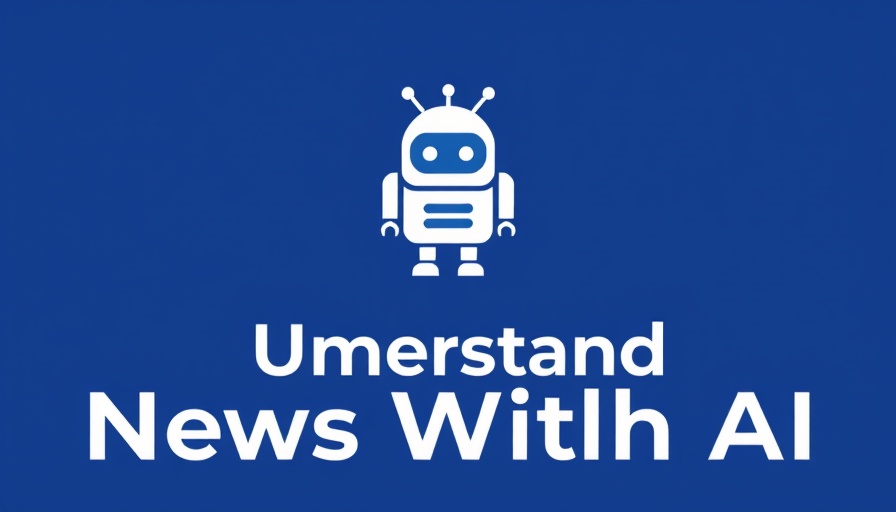
Is AI the Future of Work? Exploring Nvidia's CEO's Bold Prediction
Nvidia's CEO, Jensen Huang, has sparked conversation by predicting that AI could displace approximately 20% of jobs by the year 2030. While predictions like these often loom large in conversations about technological advancements, they also carry a weight that resonates with workers, businesses, and communities. In a world increasingly driven by artificial intelligence, understanding its implications is vital for all of us.
What Does This Mean for Our Communities?
The prospect of AI job loss is not just a statistic; it's a potential reality that many local community members may face. Across various sectors, especially in industries such as manufacturing, retail, and service, AI's influence continues to grow. For workers in the Great Lakes region—who may rely on these industries—this prediction underscores the importance of adapting to an evolving job market.
The Human Side of Technological Change: Community Resilience Factors
While AI does present challenges, communities are known for their resilience and adaptability. Local entrepreneurs are crafting creative solutions to navigate these changes. Initiatives like job retraining programs or entrepreneurial grants aim to cushion potential workers from the disruptions of technology. For instance, grassroots actions have been taken in Michigan to help workers pivot into tech-related roles, showcasing the power of local innovation.
Unexpected Opportunities: The Flip Side of AI
Interestingly, alongside potential layoffs, AI is also opening doors to new job categories that did not exist a decade ago. As machines and algorithms perform repetitive tasks, human oversight and creativity become invaluable. Fields like AI ethics, machine learning consultancy, and tech support are on the rise. Encouragingly, education and training initiatives can prepare our workforce to fill these emerging roles, ensuring they remain relevant in a shifting landscape.
Community Insights: Perspectives from Local Workers
To better understand the emotional impacts of this news, local workers have shared their feelings about the potential for AI job cuts. Many express concern, but they are also hopeful that with proper support systems, they can pivot to new opportunities. Personal stories of adaptability, such as a factory worker turned coder or a retail employee who launched an online business, highlight the human spirit's unwavering resilience in the face of change.
Addressing Myths: AI Isn’t the Enemy
One common misconception is that AI represents a complete replacement of human jobs. In reality, the integration of AI into various sectors often leads to a transformation rather than outright replacement. By recognizing that AI can be a tool for enhancement, rather than a foe, communities can cultivate a more optimistic mindset about the future of work.
Final Thoughts: A Call to Embrace Change
As AI continues to evolve, it’s essential for both individuals and communities to adapt. Staying informed about technological trends and participating in local programs can empower workers to take charge of their future. With proactive measures and resilient community spirit, we can navigate the journey through AI's impact on the workforce.
 Add Row
Add Row  Add
Add 




Write A Comment